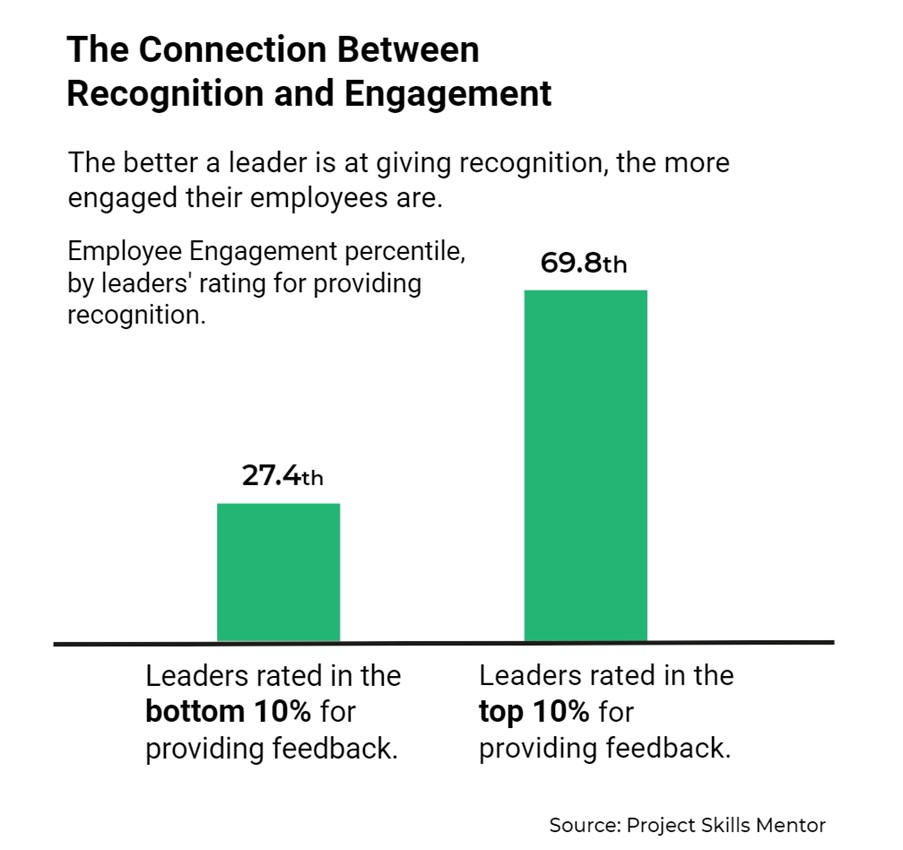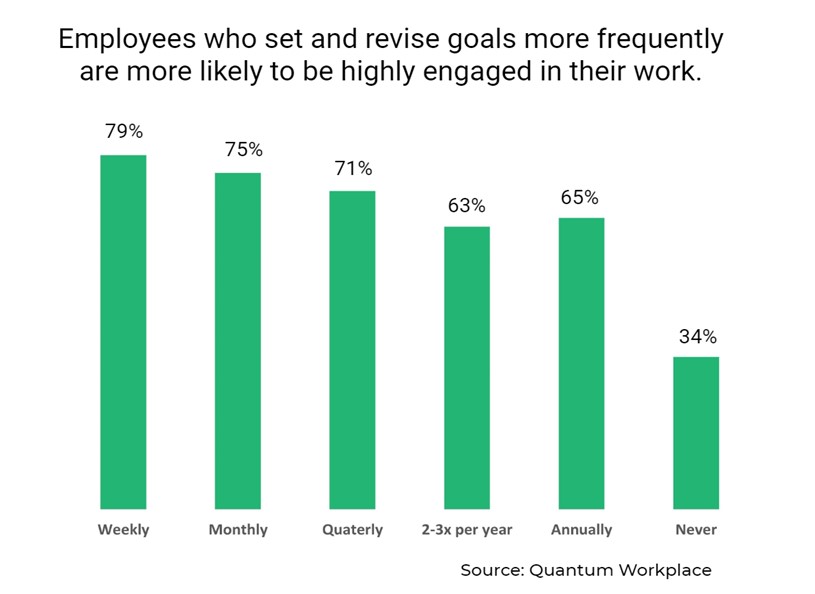
What does it take to build a team that can not only keep up with the rapid changes but also be the vanguard of innovation and performance? How can you ensure that your team is equipped with the skills, mindset, and solutions to achieve outstanding results?
These are the questions that every leader should ask themselves in this age of constant innovation, fierce competition, and digital transformation. Whether you’re an experienced leader or a new entrepreneur, you need to master the art of building high-performance teams to succeed in your endeavors. In this article, we'll delve into the characteristics, roles, types, benefits, practical strategies, and secrets of constructing high-performance teams tailored to address the challenges presented by the modern business landscape.
What is a High-Performance Team?
In the hyper-converged world, the need for exceptional results delivered swiftly and efficiently has never been greater. To navigate these challenges effectively, two key elements have become imperative for any organization:
- Skilled Managers - Effective leadership is paramount, with managers harnessing their talents to lead teams and incorporating previously overlooked skills into their practices. This includes the development of soft skills and socio-emotional intelligence, both of which play a crucial role in enhancing leadership capabilities.
- High-Performance Teams - These are specialized groups renowned for their exceptional performance and their ability to implement and execute strategies that lead to the successful achievement of shared objectives. But what truly defines a high-performance team?
A high-performance team distinguishes itself through its autonomy, agility, efficiency, and productivity. These teams strike a delicate balance between these key factors, not only ensuring their growth but also contributing significantly to the overall success of the company. High-performing teams, driven by excellence, are the backbone of any successful organization. Their skills, commitment, and self-directed responsibility make them a beacon of efficiency and effectiveness in the competitive business landscape.
Harnessing the power of modern business solutions elevates high-performance teams, granting them a strategic advantage in their quest for autonomy, agility, efficiency, and productivity. By integrating predictive intelligence solutions, these teams can anticipate obstacles, refine their decision-making process, and magnify their influence on the organization’s prosperity. This potent synergy heralds a new epoch of team performance, marked by a fusion of foresight and adaptability, paving the way for enduring distinction.
What Are the Characteristics of High-Performance Teams?
A high-performance team is a team that has the following characteristics:
- Clear Purpose - High-performance teams are driven by a clear and compelling purpose that aligns with their organization's goals.
- Shared Values - Members of these teams share common values and norms that foster trust, respect, and collaboration.
- Effective Communication - Communication within high-performance teams is characterized by openness, honesty, and active listening.
- Accountability - Team members take ownership of their tasks, roles, and outcomes, ensuring responsibility and autonomy.
- High Engagement - Team members are deeply engaged, passionate about their work, and enthusiastic contributors.
- Diverse Skill Sets - These teams boast diverse and complementary skills that cover a wide range of tasks and functions.
- Collaborative Problem Solving - High-performance teams excel in collaborative problem-solving, embracing diverse perspectives.
- Adaptability - High-performance teams adapt quickly to changing circumstances and market dynamics.
- Efficiency - They are highly efficient in their processes, optimizing resources to achieve their goals.
- Innovation - These teams encourage creativity and innovation, constantly seeking new solutions and ideas.
What Are the Roles in a High-Performance Team?
High-performance teams are the backbone of successful organizations, and understanding the roles within them is crucial for their effectiveness. Dr. Raymond Meredith Belbin, a management theorist, identified nine essential roles that contribute to a team's success.
Action Roles
- Implementer - The implementer turns ideas into actionable tasks and priorities.
- Shaper (Task Leader) - A dynamic role focused on goal organization and obstacle overcoming.
- Completer/Finisher - Meticulous, detail-oriented, and deadline-driven.
People Skills Roles
- Coordinator - Facilitates decision-making and fosters collaboration.
- Team Worker - Adept at listening, cooperating, and maintaining a tactful approach.
- Resource Investigator - An extrovert skilled in connecting, gathering information, and exploring new opportunities.
Cerebral/Intellectual Roles
- Plant - Solve problems creatively and think outside the box.
- Monitor/Evaluator - Possess good judgment and strategic thinking.
- Specialists - Offer technical expertise within their respective fields.
Understanding these roles helps team members leverage their strengths and collaborate effectively, optimizing the team's performance in high-pressure situations.
What Are the Common Types of High-Performance Team Models?
There are different types of high-performance team models that vary in their structure, composition, and function. Some of the common types are:
- Work Teams - Work teams, often managed by supervisors, specialize in tasks like production or customer service, ensuring the efficiency of their high-performance teams.
- Virtual Teams - High-performance teams transcend geographical boundaries, collaborating efficiently through digital means, providing cost-effective solutions and access to diverse expertise.
- Project Teams - Temporary and interdisciplinary, project teams leverage their diverse expertise to tackle complex challenges, consistently delivering top-tier results as high-performance teams.
- Management Teams - Comprised of top executives, management teams provide strategic direction and maintain operational efficiency, guiding the organization to success with their high-performance teams.
- Parallel Teams - Parallel teams, operating alongside formal structures, offer recommendations for organizational improvements, addressing unique needs within the framework of high-performance teams.
How to Build a High-Performance Team
Building a high-performance team is not an easy task; it requires careful planning, execution, and evaluation. Incorporating predictive intelligence solutions into this process can significantly enhance your team-building efforts. Here are some steps that you can follow to build a high-performance team:
- Prioritize Communication - Effective communication is paramount for high-performance teams. Encourage open dialogue, understand communication styles, and optimize team briefings to boost motivation, productivity, and profitability.
- Set SMART Objectives - Clear objectives lay the foundation for high-performance teams, aligning them with the company's success. Involve team members in goal setting to enhance commitment.
- Tackle Conflict - Anticipate and address conflicts swiftly to prevent escalation and maintain team cohesion, a critical element of high-performance teams.
- Understand Current and Future Dynamics - Assess team strengths, identify limitations, define roles, and anticipate reactions to change. Address skill gaps collaboratively to improve performance within high-performance teams.
- Master Emotional Intelligence - Emotional intelligence (EI) enhances teamwork by enabling individuals to manage emotions effectively. Cultivating EI fosters effective communication and teamwork, propelling high-performance teams toward success.
- Establish Trust - Trust forms the bedrock of successful teams. Encourage openness and honesty about strengths and weaknesses to build trust among team members, elevating performance within high-performance teams.
- Foster Feedback Culture - Recognize and appreciate team efforts, reinforcing their value within your teams even without financial incentives can have a significant impact. A simple 'thank you' can significantly boost team morale.
By focusing on these seven key areas, managers can cultivate and nurture high-performance teams that drive motivation, productivity, and profitability, ensuring business success.

What Should You Consider When Building a High-Performance Team?
Building a high-performance team is not a one-time event; it is an ongoing process that requires constant attention, adaptation, and improvement. Here are some factors that you need to consider when building a high-performance team:
- Team Size Matters - Don't overcrowd your team; the ideal size typically ranges from 6 to 7 members. In bigger teams, coordination and productivity can often be hindered by difficulties in communication and a sense of individuals not being heard. A smaller, well-managed team can better manage diverse perspectives.
- Embrace Invisible Diversity - Beyond visible diversity factors like gender and ethnicity, recognize the significance of invisible diversity. Consider life experiences and personality differences as integral to team members' identities. Innovative ideas often emerge from a "diversity of thought," fostering high-performance teams.
- Value Complementarity - Assess candidates not only for their technical expertise but also for their compatibility with the existing team. Personality, self-awareness, conflict resolution skills, and creative compatibility matter. Sometimes, a unique creative contribution can outweigh technical prowess, as seen in the Beatles' Ringo Starr.
- Peer Involvement in Recruitment - Involve potential peers in the recruitment process. This allows existing team members to evaluate candidates, fostering support and collaboration from the start. Additionally, peers are more convincing in "selling" the job, attracting top talent to your high-performance teams.
By considering these factors diligently, you can build high-performance teams that maximize productivity, innovation, and success within your organization.
Benefits of Building High-Performance Teams for Businesses
Building high-performance teams brings numerous benefits to businesses, creating a positive ripple effect across the organization.
- Enhanced Productivity and Efficiency - High-performance teams, composed of experts in their respective domains, collaborate seamlessly, leveraging their skills to achieve common goals. This synergy leads to a noticeable boost in productivity and efficiency within the organization.
- Conquering Challenging Objectives - High-performance teams are tailor-made for tackling intricate challenges and objectives. Their strategic focus enables them to address specific issues, whether it's creating innovative client services or fostering a new company culture.
- Building Trust and Engagement - Collaborative teamwork fosters trust and engagement among members. By relying on each other's strengths, team members develop camaraderie, fueling motivation and job satisfaction throughout the organization.
- Business Vision Realization - High-performance teams play a pivotal role in actualizing the company's vision. Their collaborative efforts align the entire workforce with the organization's goals, ultimately leading to improved business performance and client satisfaction.
- Achieving High-Priority Goals - These teams excel in accomplishing high-priority objectives. Their focused, frictionless collaboration ensures efficient progress toward shared goals, enabling businesses to achieve outcomes faster and with greater success.
- Sustaining High Performance - To maintain peak performance, clear expectations outlined in a team charter are essential. Encourage team contributions and align everyone with collective goals. Regular updates and transparent communication keep the entire team engaged and committed to the organization's vision.
What Do High-Performing Teams Do Differently?
High-performing teams distinguish themselves by adopting five distinct practices that set them on the path to extraordinary success:
- Embracing Innovation and Adaptability - High-performing teams fearlessly challenge the status quo, actively seek new ideas, and swiftly adapt to change. Their agility and resilience empower them to seize emerging opportunities, making a significant organizational impact.
- Cross-Functional Collaboration - Breaking down silos, these teams foster cross-departmental collaboration, encouraging the free exchange of knowledge and leveraging individual strengths. This synergy amplifies their collective impact and strengthens relationships.
- Recognition and Achievement Focus - High-performing teams celebrate both small and large milestones, using data-driven recognition to create a culture of appreciation. This motivates team members to strive for excellence and fosters an environment where constructive feedback is openly shared.
- Leveraging Performance Processes & Technology - Recognizing the importance of streamlined processes and solutions, these teams invest in user-friendly technology that promotes seamless collaboration, data-driven reporting, and task automation. This enables them to focus on strategic growth.
- Mutual Accountability - High-performing teams uphold collective accountability, holding themselves and their peers responsible for the team's performance. This commitment is bolstered by their collaborative spirit, goal-setting, and access to effective solutions.
These practices empower high-performing teams to consistently achieve remarkable results, propelling organizations toward greater achievements and success.
How Modern Technology Can Help You Scale Your High-Performing Team
High-performing teams are the backbone of any successful organization. They are characterized by clear communication, mutual trust, and a shared vision. However, building and scaling such a team is no easy task. It requires a deep understanding of your team’s dynamics and a commitment to continuous improvement.
Modern technology solutions are the key to efficiently scaling your high-performance teams. They offer a suite of solutions tailored to enhance your team's growth and productivity. Here's how it can work for you:
- Goal-Setting solutions for Clarity – Advanced predictive solutions facilitate clear goal setting, aligning individual and team objectives with organizational goals. This fosters collaboration and a shared sense of purpose among your team members.
- Efficient 1-on-1 Meetings for Communication - Modern business solution streamlines 1-on-1 meetings, allowing managers and employees to maintain effective communication. Whether it's performance reviews or weekly check-ins, this feature enhances transparency, trust, and collaboration.
- Real-Time Recognition for Motivation - Recognize and celebrate team achievements with real-time recognition features. By appreciating aligned behaviors and accomplishments, you nurture a culture of appreciation that motivates ongoing excellence.
- Enhanced Feedback for Growth - Create a feedback-rich environment with two-way feedback platform. Managers and employees can provide valuable insights, improving coaching, communication, and overall team performance.
- Succession Planning for Sustainability - Leverage HR technology for succession planning to sustain high-performing teams. Identify talent readiness, nurture leaders, and ensure a smooth transition to maintain success.
- Talent Reviews for Strategic Growth - Optimize talent reviews with performance management software, gathering feedback and strategizing team growth effectively. This technology empowers your organization to unlock the full potential of your high-performance teams.
By leveraging these technologies, leaders can gain a deeper understanding of their teams and make more informed decisions. This can lead to improved team performance, increased productivity, and ultimately, greater organizational success.
Below is an illustration on engagement trend based on Quantum Workplace’s findings based on research.

How To Improve Team Performance
- Build trust-based relationships within the team for better communication and coordination.
- Encourage constructive conflict around ideas to enhance decision-making and foster innovation.
- Support individual and collective responsibility to increase commitment and reduce stress.
- Align team efforts with organizational objectives by working towards common goals.
- Foster a shared sense of purpose and results-driven collaboration for exceptional performance.
Conclusion
This article highlights the role of modern business solutions, specifically predictive intelligence, in the construction of high-performance teams, ultimately fueling continuous business growth. High-performance teams embody traits like clear purpose, diverse skills, and effective communication. Building and elevating these teams require trust, innovation, and a steadfast commitment to responsibility. Predictive intelligence solutions contribute by providing data-driven insights, facilitating informed decision-making, talent identification, and aligning team goals with organizational objectives for successful project delivery. This integration fosters efficiency and innovation within high-performance teams.
TrueProject's predictive intelligence solution is instrumental in fostering high-performance teams by enabling proactive decision-making and risk handling. With advanced features like crystal-clear visualization and forecasting capabilities, TrueProject ensures teams can anticipate challenges, maintain efficiency, and align project goals with organizational objectives. TrueProject's commitment to industry best practices provides a comprehensive view of project trajectories, elevating reliability and ease in project execution. Integrating TrueProject empowers teams to consistently deliver outstanding results, marking a new era of team performance characterized by a fusion of foresight and adaptability.
Explore TrueProject's transformative capabilities at trueprojectinsight.com for a firsthand experience.

About the Author:
Nisha Antony is an accomplished Senior Marketing Communications Specialist at TrueProject, a leader in predictive intelligence. With over 16 years of experience, she has worked as a Senior Analyst at Xchanging, a UK consulting firm, and as an Internal Communications Manager on a major cloud project at TE Connectivity. She is an insightful storyteller who creates engaging content on AI, machine learning, analytics, governance, project management, cloud platforms, workforce optimization, and leadership.
Endnotes
Jayson Darby. “How to Build High Performance Teams.” Thomas: September 13, 2023. https://www.thomas.co/resources/type/blog/how-to-build-high-performance-teams
Ina Toegel. “How to create a high performance team.” IMD: November, 2017. https://www.imd.org/research-knowledge/leadership/articles/how-to-create-a-high-performance-team/
Kristin Ryba. “How to Build a High Performing Team.” Quantum Workplace: July 25, 2023. https://www.quantumworkplace.com/future-of-work/characteristics-of-high-performing-teams
Nataliya Timoshina. “How to Build High-Performance Team in 2023.” Alpha Serve: February 07, 2023. https://www.alphaservesp.com/blog/how-to-build-high-performance-team
Highako Academy. “The secret sauce: Building a high-performing team in 2023.” LinkedIn: January 07, 2023. https://www.linkedin.com/pulse/secret-sauce-building-high-performing-team-2023-highako-com/
Project Skills Mentor Team. “What High-Performing Teams will do Differently in 2023.” Project Skills Mentor: (n.d.) https://projectskillsmentor.com/mentoring/what-high-performing-teams-will-do-differently-in-2023





